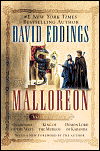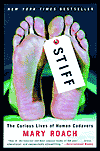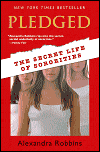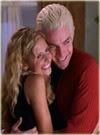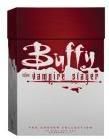For a Fresh Start to 2007, Try Setting Your Sins on Fire
January 4, 2007; Page B7 A few hours before midnight on New Year's Eve, 200 people lined up at a church in West Palm Beach, Fla., and set their sins on fire.
It's a ritual dating back centuries, and it's being embraced more widely each year in spiritual circles. People write down their regrets, fears and shortcomings, then light the paper to symbolize a spiritual cleansing. Many churches offered such "burning bowl" services this New Year's, and people are marking other life transitions, from weddings to prison paroles, with similar ceremonies.
At Unity of the Palm Beaches church, each parishioner was handed a piece of flash paper, which burns instantly. Real-estate developer Mitchell Schwartz says he wrote about tempering urges such as envy, and he felt a certain release when his flaming paper "just vanished." He likened it to a ship on the horizon. It was there, and then it wasn't. He visualized his shortcomings disappearing in just that way.
As a piano tinkled, speaker Lori Woodley encouraged congregants to write down "whatever is blocking you from becoming all that you are, in all your greatness." Clutching their papers, people of all races and ages walked to the front of the sanctuary, where they touched their lists to a candle. Each paper flashed and was gone.
Congregants were also given envelopes and a second sheet of paper, to write out goals for 2007. The sealed letters were collected and will be mailed to them in November, so they can consider their progress. "Be ostentatious, gaudy, incredible," said Rev. Ken Williamson. "Scare even yourself. Write that thought down -- the one that made you say, 'No, I can't think that. No, I can't have that.' "
Travel-tour operator Nina Fogelman, 56 years old, included lots of specifics in her letter, including the dollar amount she hopes to earn this year. "If I tell my car's GPS that I want to go to the East Coast, it won't know where to send me," she said. "But if I give an address in Brooklyn, I'll be taken there."
I attended the one-hour service to report on it, and since I have few New Age tendencies, I didn't intend to write out my flaws at first. But I did, and it was a soul-searching exercise. I wrote about how I lose my temper with my three daughters, how I don't fully appreciate my wife, how I love them all completely but show it too sparingly.
The service also led me to think about comedian Rich Vos, whom I recently interviewed. He told me he chides optimistic revelers when he performs on New Year's Eve: "People always say, 'This will be my year.' Well, what about the last 40 years? What makes you think that, all of a sudden, everything's gonna turn around for you?"
Perhaps what makes us so optimistic is the human need for hope, and the innate yearning to improve. When New York cantor Judith Steel performs marriages, she has couples write out their shortcomings. During wedding ceremonies, as she holds up the burning papers -- "I feel like I'm the Statue of Liberty," she says -- she asks guests to look at their spouses and forgive each other.
Eliot Weinstein and Marcy Aronson were married by Cantor Steel last year, but they didn't share their lists with each other. "What we wrote was sealed away, for no one else's eyes," says Mr. Weinstein. "It made it more sacred." The couple had been together for a decade. "Eliot knows my shortcomings, so he knows what I wrote," says Ms. Aronson, but burning the papers "was like a new start."
Cantor Steel was born in Germany, and in 1939, at age 14 months, was a passenger on the SS St. Louis. That ship, carrying 937 Jewish refugees, was turned away by Cuba and the U.S. It returned to Europe, where many passengers, including Cantor Steel's parents, died in concentration camps. Cantor Steel was hidden by a French Catholic family.
"What I've learned from my life," she says, "is that it's good to remember your past, but you can't dwell on it." For her, the burning ceremonies are a reminder that "we need to concentrate on the here, the now and the joy."
Write to Jeffrey Zaslow at jeffrey.zaslow@wsj.com

